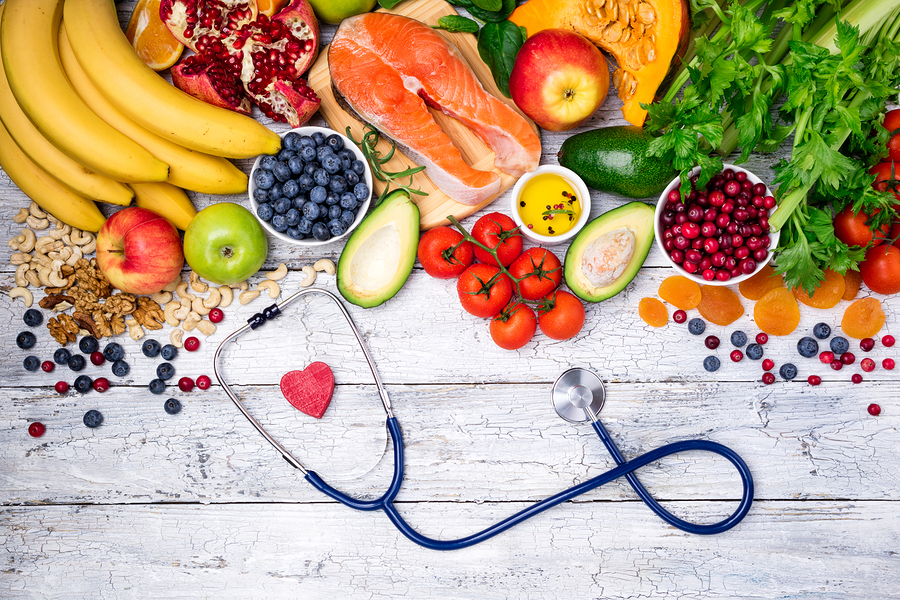Mood boosting foods
We all need to consume a varied, well-balanced diet full of essential nutrients so our bodies can function at their best. If we have days when we feel more lethargic or irritable than usual then it may be down to our diet.
If we don’t eat enough nutrient rich foods then an imbalance is created that can have negative psychological and physical effects on our bodies. So in essence, feeling well, both physically and mentally depends on eating well.
Four basic rules
The four basic dietary rules to follow to prevent feelings of lethargy or low mood are:
Eat regularly
Try not to skip meals. Eating regularly keeps blood sugar levels stable so our energy levels are then less likely to dip and our mood should stay even.
Low GI carbs such as whole wheat pasta, porridge, seeded bread, lentils, beans and a variety of fruits and vegetables are all rich in B vitamins which can help boost nervous energy.
Always eat breakfast
Eating breakfast helps to kick-start our metabolism and refuels the body. While we’ve been asleep our body has used lots of energy to repair and recuperate cells. Skipping breakfast will throw out our body’s rhythm of fasting and eating, and if we don’t eat we won’t have the blood sugar our body needs to make our muscles and brain work at their best.
Breakfast should be high in fibre and protein and low in sugar. Eating protein will help to keep us feeling fuller for longer by balancing our blood sugar levels. Choose foods such as eggs, natural yoghurt with fruit and nuts or wholegrain cereal or wholegrain bread with fruit or fruit juice
Mix it up
Eating a variety of different foods is more likely to give us a fuller range of vitamins and minerals which in turn will help our body to work as well as it should.
Keep those fluids levels up
Dehydration leads to fatigue not only physically but can also affect our ability to concentrate and think clearly.
We should be aiming to drink 1.5 to 2 litres a day but this doesn’t all have to be water from the tap. Dairy products like yoghurt and cottage cheese along with fruit and vegetables all have high water content.
It is worth bearing in mind that tea and coffee should be consumed in moderation as too much caffeine can act as a diuretic and may also affect sleep.
If you don’t fancy plain water then herbal teas or fruit-infused water all count. And if you want to stay away from sugary cordials try popping a slice of lemon, cucumber, orange slices or some mint into your glass as a healthy alternative.
Foods to boost mood
A healthy ‘good mood’ diet is one that includes foods from each of the five major food groups. Eaten in moderation, these should provide you with the range of nutrients your body needs to keep you on an even keel:
- Starchy foods – wholemeal bread, rice, potatoes and pasta
- Fruit and veg – try and eat at least five portions a day
- Protein – meat, fish, beans, tofu, eggs
- Dairy foods – cheese, milk and yoghurt
- Oils and spreads – some fats are essential but try and choose healthier unsaturated fat products where possible
Mood boosting vitamins and minerals
Certain vitamins and minerals affect our energy levels and our mood more than others:
Iron – from red meat, tinned fish and liver. Some breakfast cereals and bread are also fortified with iron. If you are vegetarian then try drinking fruit juice with your meals as vitamin C enhances the absorption of iron.
Vitamin B – a deficiency in vitamin B can make you feel depressed or irritable. You can find vitamin B in yeast extracts, wholegrains and fortified breakfast cereals.
Glucose – our bodies need a steady supply of glucose from pasta, beans, lentils, bulgur wheat, granary or seeded breads and fruit and vegetables.
Selenium – good sources of selenium include meat, fish, eggs and Brazil nuts. Including selenium rich foods in our diets has shown to reduce negative feelings and depression. Nuts such as walnuts and Brazil nuts also provide potassium, calcium, magnesium, iron, zinc and vitamin E.
Folate – liver, green vegetables, citrus fruits, beans, yeast extract and breakfast cereals all contain folate which can help boost mood.
So try and stay away from fad diets or diets that exclude a particular food group or demand a rapid calorie reduction and instead embrace a nutritionally rich, well-balanced diet that will enable you to function at your best.
Read more on how to make healthy foods interesting.
Disclaimer
All content on Silversurfers.com is provided for general information only, and should not be treated at all as a substitute for the medical advice of your own doctor or any other health care professional. Silversurfers will not be responsible or liable for any diagnosis made by a user based on the content on www.silversurfers.com and we are also not liable for the content of any external websites or links from or to Silversurfers to any other websites. Please always consult your own doctor if you’re in any way concerned about any aspect of your health.
Melina - Assistant Editor
Latest posts by Melina - Assistant Editor (see all)
- Top tips for hay fever sufferers - April 14, 2024
- Paysan Breton Cream Cheese Breakfast Wraps - April 12, 2024
- 4 Homemade Sweet Treats for Easter - March 24, 2024
- Playground Memories - March 10, 2024
- The invasion of the duvet: the ’10-second bed’ - February 20, 2024





















